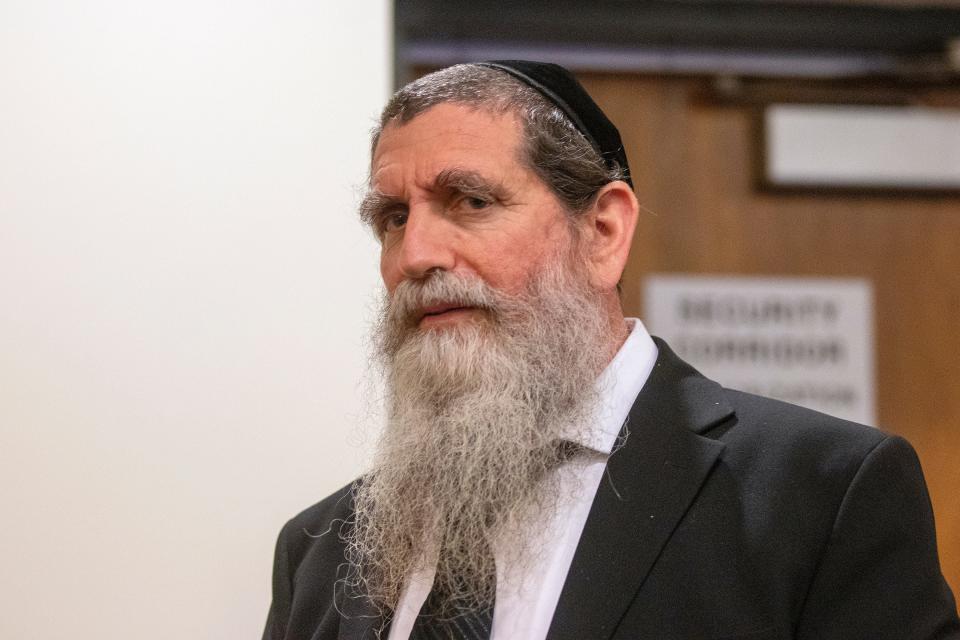Will Lakewood SCHI school founder be retried in corruption case? Supreme Court weighs in
The state Supreme Court has declined to hear an appeal by the state Attorney General's Office of a ruling granting a new trial for Rabbi Osher Eisemann, the founder of Lakewood's School for Children with Hidden Intelligence (SCHI) who was convicted of money laundering and corporate misconduct in 2019.
A conference is now scheduled for Monday before Judge Joseph Paone in Superior Court in Middlesex County to discuss how the criminal case against Eisemann will proceed.
Eisemann's attorney, Lee Vartan, said the state's high court on Friday denied the attorney general's request to consider an appeal of the May decision by the appellate division of Superior Court, leaving the lower-court ruling by Paone intact.
Paone last year granted Eisemann's motion for a new trial after Vartan argued that a former bookkeeper for SCHI had come forward and claimed it was she who made a $200,000 accounting entry in 2015 that formed the basis for the money laundering allegation against Eisemann.
At Eisemann's 2019 trial, prosecutors argued the defendant diverted $979,000 from the school to his own purposes. The jury rejected that argument and acquitted Eisemann of first-degree corruption of public resources, theft and misapplication of entrusted property.
The jury, however, in convicting Eisemann of money laundering and misconduct by a corporate official, found he moved $200,000 of school money through private accounts, including his own, before funneling it back to the school through third-party organizations to make it look like he was repaying a debt.
In 2021, when Eisemann's attorneys were preparing for him to be re-sentenced, Rochel Janowski, a former part-time bookkeeper for SCHI, came forward and claimed to have made an accounting error that was the basis for the money-laundering allegation.
Janowski said in a certification that she mistakenly entered a $200,000 credit on a loan account to balance the school's books, not to write down a loan to Eisemann, as the state had alleged. She certified that she never discussed the bookkeeping entry with Eisemann.
In arguing for a new trial, Vartan asserted not only that the new information from Janowski vindicated Eisemann, but also that prosecutors knew about it during the trial and kept it from the defense.
Superior Court Judge Benjamin Bucca sentenced Eisemann in 2019 to 60 days in jail, but the jail sentence was put on hold pending outcome of an appeal. Appellate judges later ordered that Eisemann be resentenced by a different judge because Bucca was too lenient on him.
The re-sentencing never occurred because Eismann's attorneys filed the motion for a new trial. Eisemann has remained free the entire time.
The SCHI school, which Eisemann founded in 1995 to serve a handful of developmentally delayed, medically fragile and emotionally challenged children, now serves more than 600 special needs youngsters, according to its website.
The school, on Oak Street in Lakewood, receives about $1.8 million a month from public school districts that send students there, the Attorney General's Office said when charges were first brought against Eismann in 2017.
Eisemann has been on a leave of absence from the school since he was first charged in the case.
Kathleen Hopkins, a reporter in New Jersey since 1985, covers crime, court cases, legal issues and just about every major murder trial to hit Monmouth and Ocean counties. Contact her at khopkins@app.com.

This article originally appeared on Asbury Park Press: Lakewood SCHI school founder's corruption case heads back to court

